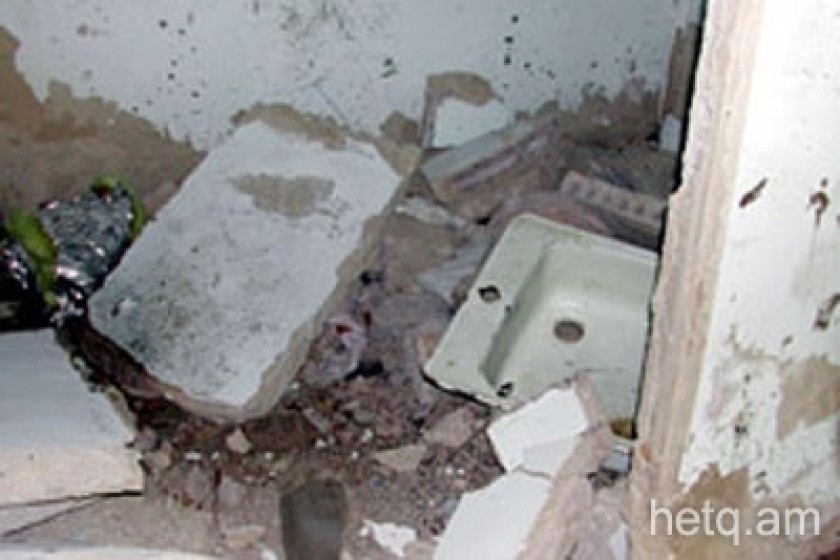
Apartments for Graduates from Children's Homes are Unfit to Live In
Since 2003 the Government of Armenia has been providing the graduates of children's homes with apartments, but many of these young people have been given apartments that are unfit to live in.
Some live in these dwellings for lack of a better alternative, some decline the apartments, some others have to abandon the apartments from the very beginning and look for shelter elsewhere. The Government has spent and keeps spending tidy sums to buy these apartments. This year it allocated 379 million drams (about $1.1 million) for apartments for 50 people.
The Ministry of Labor and Social Issues has implemented a program entitled “State Assistance to the Graduates of Children's Tutorial Organizations of Armenia” since 2003. The program's goal is to acquire apartments for children from orphanages who have turned 18 as well as to provide them with educational, medical, legal, social-psychological and other assistance.
The program beneficiaries are not only those who graduate each current year but also those who graduated in the 1990s. Program manager Anna Mnatsakanyan, who is also the project coordinator of the Armenian Relief Society, a non-profit organization, says that there is no information about some 40-50 people who graduated in the 1990s.
The apartments are given to the graduates for use without charge for a period of ten years, after which they have the right to privatize the apartments.
Since 2003, about 100 graduates have got apartments and other furniture and household items. Between 40 and 50 people receive apartments every year. Only about 30 people graduate from the children's homes each year; the rest are graduates who have waited their turn since the 1990s. According to Lala Ghazaryan, the head of the department that deals with family, women and children's' issues of the Ministry of Labor, the state will settle accounts with these people by 2009.
In order to be eligible for this program, a children's home graduate must meet certain criteria. First, a graduate is required to have lived in a children's home for 7-8 years, to have no property in his or her name, and to turn 18 at the children's home.
In addition to providing housing, the program also envisages rendering various forms of educational, medical, legal, social-psychological and other assistance. These issues were handled by the NGO Armenian Democratic Forum from 2003 to 2005. Since 2006 this part of the program has been implemented by the Armenian Relief Society, which is also tasked with locating and registering graduates and designing individual programs for each of them depending on his or her situation and needs.
Apartments unfit to live in
 Igor Kameshko is 29 years old. Within the framework of the state program he received an apartment in the 6 th district of Charentsavan. His apartment is on the top floor of a nine-story apartment building but he hasn't stayed there for a single day because rainwater flooding into the apartment damaged the ceiling, the walls and the floor.
Igor Kameshko is 29 years old. Within the framework of the state program he received an apartment in the 6 th district of Charentsavan. His apartment is on the top floor of a nine-story apartment building but he hasn't stayed there for a single day because rainwater flooding into the apartment damaged the ceiling, the walls and the floor.
Igor received his apartment in summer and had no idea that because of the worn-out roofing the rainwater would flow in. Now Igor lives at his friend's house and is unemployed. Unlike many others his apartment is light and comfortable but he doesn't have the money to repair it and doesn't see any sense in doing so since with every rainfall the story will repeat itself.
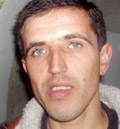 “I don't have money to repair the roofing of the entire building. There are no jobs in Charentsavan and I can't spend 400-500 drams a day to go to work inYerevan. And I can't find a job inYerevan that would cover the transport expenses,” Igor Kameshko said.
“I don't have money to repair the roofing of the entire building. There are no jobs in Charentsavan and I can't spend 400-500 drams a day to go to work inYerevan. And I can't find a job inYerevan that would cover the transport expenses,” Igor Kameshko said.
His neighbor's apartments on the same floor are in the same condition. They say that because of the roofing the rainwater have been flooding in their apartments for several years now. If interested the buyers could have found out that the top floor had this problem and that the new resident would not be able to fix it. “The apartment was bought in 2005 for $1,100,” Igor said.
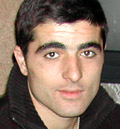 24-year-old Mher Shakaryan lived at the Zatik children's home from the age of 8. He was given an apartment in 2005 in Masis. Mher is married and wants to have children but he can't live in an apartment where the only room has no windows. There is no bathroom or running water. Mher was told that the tiny plot of land next to his apartment was also his, but his neighbor disputes this.
24-year-old Mher Shakaryan lived at the Zatik children's home from the age of 8. He was given an apartment in 2005 in Masis. Mher is married and wants to have children but he can't live in an apartment where the only room has no windows. There is no bathroom or running water. Mher was told that the tiny plot of land next to his apartment was also his, but his neighbor disputes this.
Mher found out from the former owner that the apartment had been sold for $1,500. He refuses to sign the papers attesting that he was provided with an apartment.
“I don't say that I want a luxury apartment. I agreed to live in Masis and I'm able to find job here. But the apartment should, at least, have windows,” Mher Shakaryan said.
Mher has been living with his mother, sister, and wife in the guardhouse of an abandoned poultry farm for six years now. The owner of the farm allows them to stay on. Mher has a second-degree disability—he suffered from heart disease and seriously injured his arm in a car accident.
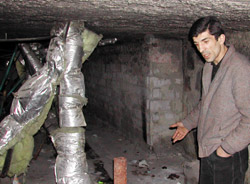 Khachatur Afrikyan's apartment is located in the 16th district of Yerevan. The ground floor of the nine-story apartment building (which according to the design was not a living space) has been converted into seven apartments. Between these seven apartments and the nine floors there is an area where the sewer system of the entire building is located. The old, worn-out pipes break every winter and their contents pour into these seven apartments adapted for graduates of children's homes.
Khachatur Afrikyan's apartment is located in the 16th district of Yerevan. The ground floor of the nine-story apartment building (which according to the design was not a living space) has been converted into seven apartments. Between these seven apartments and the nine floors there is an area where the sewer system of the entire building is located. The old, worn-out pipes break every winter and their contents pour into these seven apartments adapted for graduates of children's homes.
“Thank God I'm not in the street, but this isn't much like an apartment either. In addition to things breaking down, there is no ventilation, the floor is concrete, the water pipes are plastic – I can't even heat the pipes when they freeze up to melt the ice,” Khachatur Afrikyan said, “ and when I go to the Ministry of Labor and Social Issues the guards - after finding out that I'm a graduate of a children's school - tell me that Lala Ghazaryan told them not to let any graduates in. I personally was given this answer several times.”
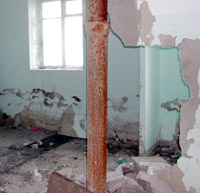 Artur Abrahamyan's dilapidated apartment is also located on the ground floor of the nine-story building in the 16 th district. The sewer system of the building is located immediately above his apartment. After one of the sewer breakdowns that happened in winter of 2003 – a few months after Artur Abrahamyan received the apartment – the entire contents of the sewer poured into his apartment. The neighbors said that Artur has no place to live and spends nights at his friends' houses.
Artur Abrahamyan's dilapidated apartment is also located on the ground floor of the nine-story building in the 16 th district. The sewer system of the building is located immediately above his apartment. After one of the sewer breakdowns that happened in winter of 2003 – a few months after Artur Abrahamyan received the apartment – the entire contents of the sewer poured into his apartment. The neighbors said that Artur has no place to live and spends nights at his friends' houses.
Grigor Hakobyan is one of the seven program beneficiaries mentioned above. He lives in the apartment given within the framework of the program with his mother and two sisters, who themselves grew up in orphanages. They meet every winter with worries about handling the upcoming sewage system breakdowns.
 “I received the apartment in the summer of 2003. They do some redecoration and consider their job done. The real conditions reveal themselves a few months later. I can't even repair anything myself because these breakdowns are going to happen again. The apartment is damp and there is no ventilation,” Grigor Hakobyan said.
“I received the apartment in the summer of 2003. They do some redecoration and consider their job done. The real conditions reveal themselves a few months later. I can't even repair anything myself because these breakdowns are going to happen again. The apartment is damp and there is no ventilation,” Grigor Hakobyan said.
Pipes of various gauge run over the walls and the ceiling of Grigor's apartment making the room more frigid. Nobody knows what purpose they serve.
At the beginning of every year the Public Procurement Agency announces tenders for organizations and individuals. Three years in a row the Sokol Group - mainly known as a company that imports petroleum – has bought the apartments for children's schools graduates without any tender, using the money allocated from the state budget.
Why the Sokol Group?
 Videos
Videos Photos
Photos
Comments (1)
Write a comment